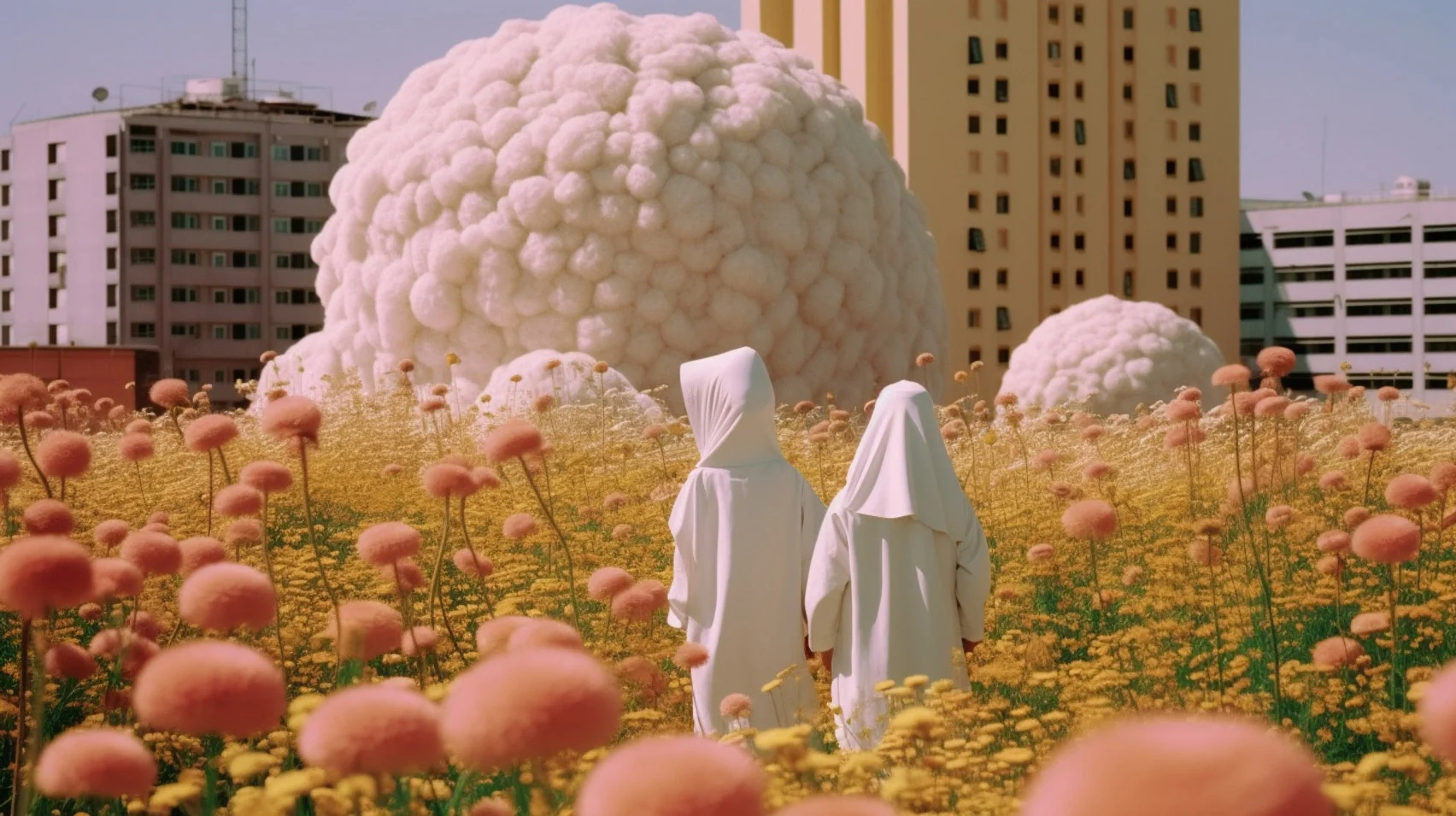If artificial intelligence could translate animal communications, would they be liberated or controlled? Dezeen’s ‘AItopia’ series asks this and other Q’s
One of our favourite design resources, Dezeen, is running an editorial theme at the moment called AItopia - which is Dezeen’s classic mix of the ethically thoughtful and the visually brain-busting.
We were struck by two items - the first of which is an interview with the bio-and-tech-focussed artist Alexandra Daisy Ginsberg, setting in context her Machine Auguries installation, open now at the Toledo Museum of Art. Some quotes:
The work features an imitation of a "dawn chorus" made up of real birds singing alongside convincing artificial intelligence (AI)-generated counterparts.
Ginsberg used AI for "this quite perverse thing" in order to draw attention to what she perceives as complacency around biodiversity loss and habitat destruction, which she believes is being exacerbated by a culture of techno-optimism that is funnelling attention towards AI.
The Machine Auguries installation replicates elements of a "dawn chorus" of birdsong
"Imagine if the amounts invested in these technologies were instead invested in protecting our environment — the environment that keeps us alive in the immediate future," she said. "Investment at that scale would protect billions of people from a disaster that is already unfolding."
"We have to ask: who gets to benefit from making AI technologies," she added. "And they're not necessarily technologies of peace."
Ginsberg has spent more than a decade using technologies ranging from algorithms and simulations to DNA and engineered bacteria in her artworks and conducted extensive research into the field of synthetic biology, but Machine Auguries is her first work to focus squarely on AI.
In various interviews with the Toledo Museum, Ginsberg worries about the wider implications of turning natural birdsong into digital phenomena:
"It raises all sorts of questions around the right to listen: eavesdropping, the ownership of these datasets, and stewardship”, says Ginsberg. “Should recordings of biodiversity be stewarded by the people whose lands these organisms live on? Should there be Indigenous stewardship, for example?"
This becomes important because depending on who has access and control, the data could be used for very different ends. A translation of what elephants are saying, for instance, would be attractive for conservationists and poachers alike.
"If we can understand what animals are saying, that means we can potentially protect them," said Ginsberg. "But it also means that we can find them and exploit them."
"AI in particular around this area raises a lot of questions that may not be at the forefront of our minds. But as we face the climate and biodiversity emergencies, this is something we need to think about."
"A copy of nature lures us to think that nature is safe and can be 'rebooted' — think de-extinction," said Ginsberg. "These technologies reassure us into thinking that we can recreate, that we can hold on to, that we can archive reality, and that's not possible. Without the natural environment, there's nothing."
From https://www.freyjasewell.co.uk
The second item in Dezeen’s AItopia theme we love is this essay from Freyja Sewell on the limitedness of the “cyberpunk” framing of AI’s development. Extract below:
The more conversations I have, the more alarmist clickbait I see, the more I realise that some people actually believe the cyberpunk story of AIs and their one-per-cent handlers enforcing a new evil empire and ruling forever and ever. But history, psychology and logic tell us one thing that empires and overly dominant power systems always, always do: they fall.
Yes, AIs will temporarily further consolidate power into the hands of those who already have too much. No boys, your robot toys will make you into immortal gods, this isn't Elysium or Bladerunner, this is reality.
I am excited at the potential AI holds to efficiently and ethically help us manage and distribute the finite resources of our planet within the systems of nature and eight billion humans. To release an unprecedented wave of human creativity and problem solving just when we need it, by clearing our schedules from busy work.
There are plenty of talented people working on just these kinds of uses. Unfortunately the majority of the huge processing power required is currently being squandered to generate adverts for soda pop, scrape our data without explicit permission and add fictional numbers to a few people's bank accounts.
Imagine if all the voices, previously ignored by our listening to only one group, felt empowered to create their own visions. Imagine if, rather than only thinking about a narrow type of mechanistic technology, we started exploring things like wet computing, DNA bio printing, mycelium materials.
What would a world that was grown rather than extracted and constructed look like? Imagine if the recent rise of ancient and indigenous culture was included, technologies of psychedelic ceremony and healing intertwining with our AIs and understanding of interconnectivity.
Science fiction is an open creative prompt which could result in infinite visions. I'm so excited for a time when we remember this, and our sci-fi stories become as diverse, complex and full of variety as the world we share. Fuck cyberpunk, bring on the future!
More here. Below is Freyja Sewell’s presentation on how “female-led design & thinking can redefine the metaverse” (see our other blog on democracy and the metaverse this week).


